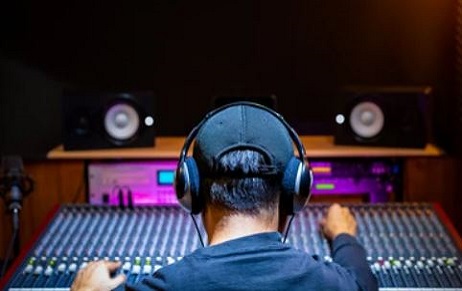A new era started with the innovation of Artificial Intelligence (AI). AI systems can produce…
Authorship In An Impromptu Performance Under Indian Copyright Act
INTRODUCTION
If a singer, at a concert, was to sing in a melodious way under indian copyright act, in an impromptu manner, i.e., there were no prior existing lyrics or melody, would such a singer be considered an author of the lyrics and the music, apart from being a performer?
Interestingly, a lot of thought has been put into such a situation or any other situation of a similar kind, where a performer, say a singer, choreographer, or stand-up comedian, is creating a work on the spot through his/her performance, but none of the positions render them authorship in their impromptu creation if it is not prior fixed in a tangible medium.
While such impromptu performances may be able to pass the qualifier of originality easily, the issue arises in not being able to meet the criterion of ‘fixation’. This article shall first attempt to analyze if performance under the Indian Copyright Act requires any pre-existing work, and if it does not, would the singer be able to claim authorship over his or her impromptu and unfixed music and lyrics.
INTER-RELATIONSHIP BETWEEN PERFORMER, PERFORMANCE, AND A WORK
Section 2(qq) of the Indian Copyright Act, through an inclusive definition, illustrates a list of people who could be regarded as “Performers”, and it includes a “Singer”.
Section 2(q) of the Indian Copyright Act defines a “performance” as— “‘performance’ in relation to performer’s right… made live by one or more performers.”[i]
If we look at the definition of “performer” and a “performance”, we can see that they are closely linked with each other, but there doesn’t exist any link between a “work” and a “performance”.
“Work” and a “Performance” under Copyright law are two separate concepts. Though the conventional understanding of “performance” is that a performance has to be linked with work, this raises a question as to such performances where there is no pre-existing work. Several statutes including the US and the UK Copyright Law follow this conventional format.[ii] Under Rome Convention also, we can find that there is a specific reference made to “performance of Literary and Artistic Works.” Literary and Artistic work under the Rome Convention is referring to ‘literary and artistic work’, as it is referred to under the Berne Convention. However, Berne Convention does not confine ‘literary and artistic works’ as they are understood today, but it includes all types of works— be it dramatic work, musical work, or a combination of both. All types of creative expressions are included thereunder.
Thus, this leads to an interpretation that there exists a linkage between “Work” and “Performance”, which means, if a performer is not performing a ‘work’, it will not be considered a performance. As per this interpretation, any stage performance of impromptu nature, i.e., not performing a pre-existing work, will not be considered a performance, and no performer’s rights would vest in the artiste of such impromptu performance. But wouldn’t that be wrong to such a singer, in terms of his rights under the Copyright Act?
Fortunately, the Indian Copyright Act has taken a very progressive interpretation in this regard, by not creating any linkage between a “performance” and a “work”. This makes it clear that a singer performing in an impromptu manner, without relying on any pre-existing work, can very well create a work while performing, and in that case, he shall be, both, an author and a performer of such work, entitled to Copyright as well as Performers’ Rights, respectively.
SINGER— AN AUTHOR OF MUSIC AND LYRICS
Section 2(p) of the Copyright Act defines a “Musical Work” as “a work consisting of music… but does not include any words or actions intended to be sung, spoken or performed with music.”[iii]
This definition clearly draws a distinction between ‘music’ and ‘lyrics’, and under copyright law, a ‘musical work’ refers only to ‘music’, and not to ‘lyrics’.
Thus, in the context of Copyright Law, there are two kinds of works that shall come into question—
- Music, which falls in the category of musical works; and
- Lyrics, which fall in the category of literary works.
Fixation in Musical Work
Section 2(d)(ii) of the Copyright Act states that “the ‘author’ in relation to ‘musical work’ is called a Composer.”[iv]
The definition of ‘Composer’ under Section 2(ffa) uses the terminology “…regardless of whether he records it…” which clearly suggests that the Act does not mandate the requirement of fixation with respect to musical works. This means that such musical work can be created through the act of performance, which the singer singing impromptu at a concert does. Hence, he can rightfully claim his authorship over such music. The removal of the requirement of fixation is in line with India’s obligations under the TRIPS Agreement, which deems the criteria of fixation as ‘facultative’ and leaves it upon member countries to decide for themselves, keeping in mind their domestic obligations and scenarios.
Fixation of Literary Work
Intuitively, a literary work is always required to be fixed, and cannot be perceived without it being reduced in a tangible medium. However, if we take this understanding, then ‘lyrics’ would also require some kind of fixation, prior to it being performed. But this becomes problematic when we consider Section 14(a)(iii) which states, “in case of a literary, dramatic work… to perform the work in public.” This shows that the Copyright Act recognized that a literary work can also be performed, or rather it can facilitate performance.
In such a situation, instead of focusing on the requirement of ‘fixation’, we must delve deeper and go into the very purpose behind having the requirement of fixation. In India, the qualifier of fixation is required to address the fundamental principle, which states— “a copyright shall protect only the expression and not the idea.” However, several copyright regimes meet this principle without requiring fixation. In fact, India itself has shrugged away the necessity of fixation in case of ‘musical work’, as such mandatory requirement of fixation disentitled the singer, and only protected the rights of the composer.
In Roberts v. Chanel, the French Court opined that the purpose of fixation is merely to serve as an evidence in case of an infringement of copyright, and is not a precondition for a copyright to exist. Copyright in a work exists the moment the work is expressed in a perceivable form.
Thus, if we borrow this understanding, the singer singing the lyrics, in an impromptu manner, at a concert, is being perceived (heard) by the live audience (irrespective of the quantum), without having to fix such lyrics in a tangible medium.
Further, if we look at Section 2(a)(ii), it says, “adaptation” means, “in relation to a literary work … the conversion of the work into a dramatic work by way of performance in public or otherwise.” It simply says that it is possible that a literary work can be adapted into a dramatic work by way of performing it.
Section 2(h), defines ‘dramatic work’ to “include any piece of… the form of which is fixed in writing or otherwise…”.
This can be interpreted in two ways—
- form of which is fixed in writing or in formats other than writing, say in print; or
- form of which is fixed in writing or not fixed.
This definition is quite mischievous in the context of the requirement of fixation, and can be interpreted differently in different circumstances of the case. Though the Indian courts mandate the requirement of fixation in the case of dramatic works, and go by the first interpretation here, as can be seen in the case of Charlotte Anderson, this interpretation seems to be restrictive and problematic when we read it along with Section 14(a)(iii) and Section 2(a)(ii).
But if we go by the second interpretation of Section 2(h), and try to harmoniously construe it with Section 2(a)(ii), we can conclude that a literary work can be adapted into dramatic work via performance.
This interpretation is both broader and progressive, and can allow a singer to adapt his impromptu literary work (lyrics) into dramatic work by way of performance in public or otherwise.
CONCLUSION
Conventionally, copyright law does not allow a performer to claim authorship in his unfixed work. A Singer can be a performer under the Act, and can to a certain extent claim authorship in his/her musical work. But due to the assumption of fixation attached to a literary work, the singers tend to lose their authorship in the lyrics they created in an impromptu manner, and haven’t been fixed in any tangible format whatsoever. But if we harmoniously construe Section 2(a)(ii) with Section 2(h), we can allow such singers or any other performer to claim authorship over such literary work which has been adapted into dramatic work created via performance, apart from his/her separate right in performance. This interpretation also aligns with the definition of ‘performance’, ‘performer’, and ‘work’ under the Act which do not mandate the performance of any pre-existing work fixed in a tangible medium.
This understanding is also recognized under the Beijing Treaty, where it says that a performer through his performance can gain authorship rights, and can subsequently control that work. Though India is not a party to the Beijing Treaty on Audiovisual Performances, 2012, this interpretation would benefit the performers, who will then have broader rights that are attached to their performance under Section 38A as well as their work under Section 14 of the Copyright Act, 1957.
Author: Harsha Aswani – a student of LL.M. (IPR) from National Law University, (Jodhpur), in case of any queries please contact/write back to us via email [email protected] or contact us at IIPRD.
References:
[i]The Copyright Act, 1957, §2, cl. (q).
[ii]17 USC §101, “to perform a work means…”; Copyright, Designs and Patents Act, 1988 (UK), §19, cl. 2(b), “performance, in relation to a work, in general includes…”
[iii]The Copyright Act, §2, cl.(p).
[iv]The Copyright Act, §2, cl.(d).



